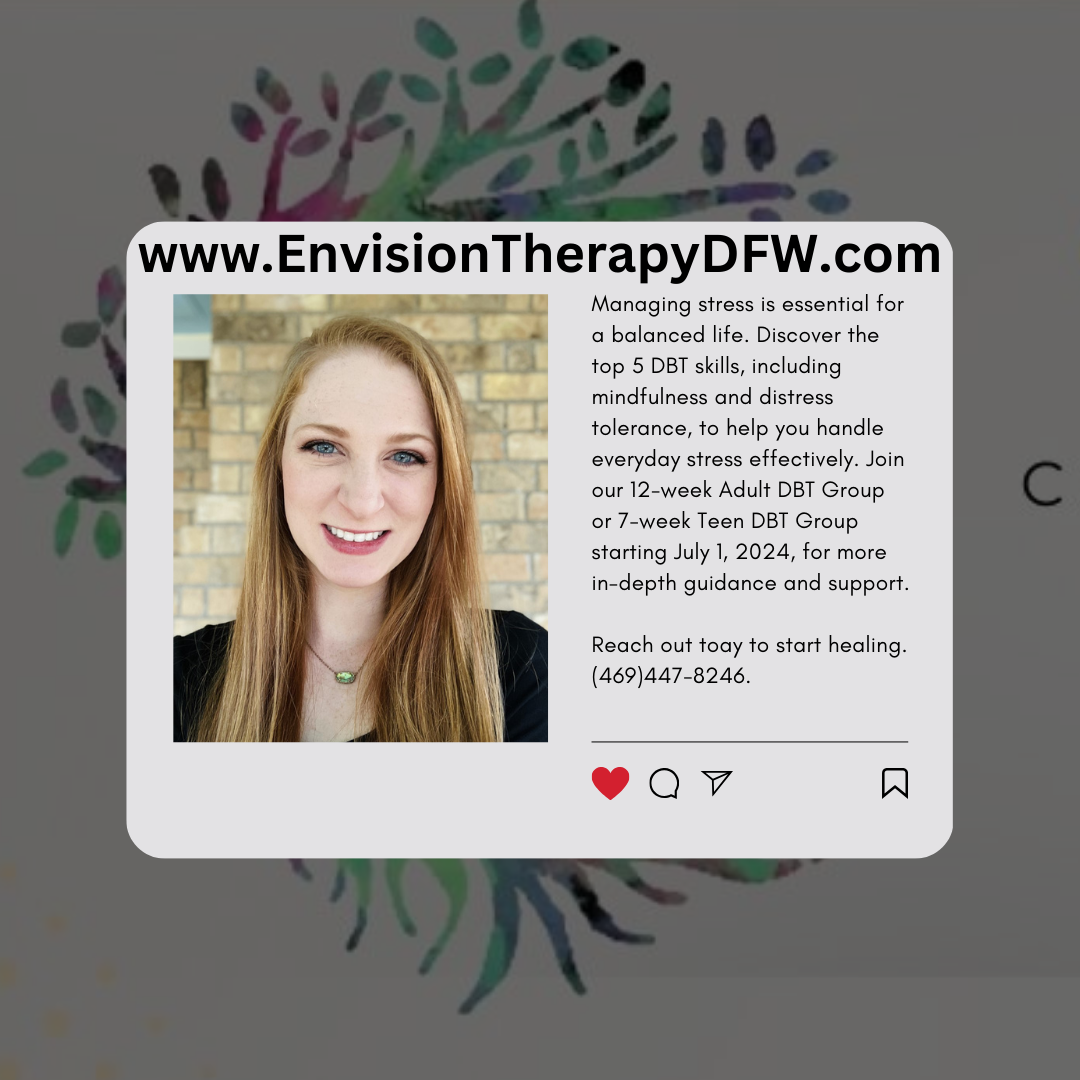Social media is a double-edged sword. While it offers a platform to connect with others, stay informed, and share experiences, it can also lead to stress and anxiety. Dialectical Behavior Therapy (DBT) provides valuable skills that can help you navigate the complexities of social media use, ensuring it enhances rather than diminishes your well-being.
Understanding Social Media Stress
Social media stress can stem from various sources: the pressure to present a perfect life, the constant comparison with others, and the fear of missing out (FOMO). DBT skills, particularly mindfulness and distress tolerance, can be incredibly effective in managing these stressors.
Mindfulness: Staying Present
Mindfulness involves being fully present in the moment, which can be challenging when scrolling through endless social media feeds.
How Mindfulness Can Help
- Reducing Overwhelm: By focusing on one post at a time and being aware of your reactions, you can prevent the feeling of being overwhelmed.
- Enhancing Enjoyment: Mindfulness allows you to appreciate the positive aspects of social media without getting bogged down by the negatives.
Example Exercise
Before you start using social media, take a few deep breaths and set an intention. For instance, decide to focus only on positive content that makes you feel good. As you scroll, pay attention to your emotional responses and pause if you start feeling anxious or stressed.
Distress Tolerance: Handling Negative Emotions
Distress Tolerance skills help you cope with the negative emotions that can arise from social media use, such as jealousy, anger, or sadness.
How Distress Tolerance Can Help
- Managing Triggers: Techniques like self-soothing and distraction can help you manage emotional triggers without reacting impulsively.
- Building Resilience: Regularly practicing distress tolerance skills can increase your ability to handle stress, both online and offline.
Example Technique: Radical Acceptance
If you come across a post that triggers negative emotions, practice Radical Acceptance. Acknowledge the reality of the situation without judgment. Remind yourself that it’s okay to feel upset but that these feelings don’t define your worth.
Emotion Regulation: Understanding Your Feelings
Emotion Regulation involves understanding and managing your emotions. This skill is crucial for navigating the highs and lows of social media.
How Emotion Regulation Can Help
- Identifying Emotions: Recognizing your emotions allows you to respond rather than react impulsively.
- Healthy Responses: Techniques like opposite action can help you respond to negative emotions in a healthy way.
Example Scenario
If you feel envious of someone’s post, instead of stewing in jealousy, practice Opposite Action (Cue Seinfeld Season 5 Episode 22) by liking their post and leaving a positive comment. This can shift your focus from envy to appreciation.
Interpersonal Effectiveness: Navigating Online Interactions
Interpersonal Effectiveness skills are about communicating your needs and maintaining healthy relationships, which can be particularly challenging on social media.
How Interpersonal Effectiveness Can Help
- Setting Boundaries: Helps you communicate your needs and set boundaries with others online.
- Resolving Conflicts: Provides tools for resolving online conflicts constructively.
Example Exercise: DEAR MAN
Use the DEAR MAN technique to address a conflict:
- Describe: “I noticed that your comment on my post was hurtful.”
- Express: “I felt really upset by it.”
- Assert: “I need you to be more considerate with your comments.”
- Reinforce: “When you’re kind, our interactions are much more enjoyable.”
- Mindful: Stay focused on the issue without getting sidetracked.
- Appear Confident: Maintain a calm and confident tone.
- Negotiate: “Can we agree to communicate more respectfully?”
Conclusion
DBT offers practical tools to manage the stress and anxiety that can come from social media use. By incorporating mindfulness, distress tolerance, emotion regulation, and interpersonal effectiveness into your online interactions, you can create a more balanced and fulfilling social media experience.
If you’re interested in learning more about our Adult DBT Group or our Teen DBT Group and how it can help you manage stress call 469.447.8246 or fill out the form below to enroll today! **We only have 2 spots left and you must be signed up by July 6th at 5PM. If you can’t start yet, let us know and we can put you on the waitlist for our next group.
DBT, social media, stress, anxiety, mindfulness, distress tolerance, emotion regulation, interpersonal effectiveness, mental health, online interactions

